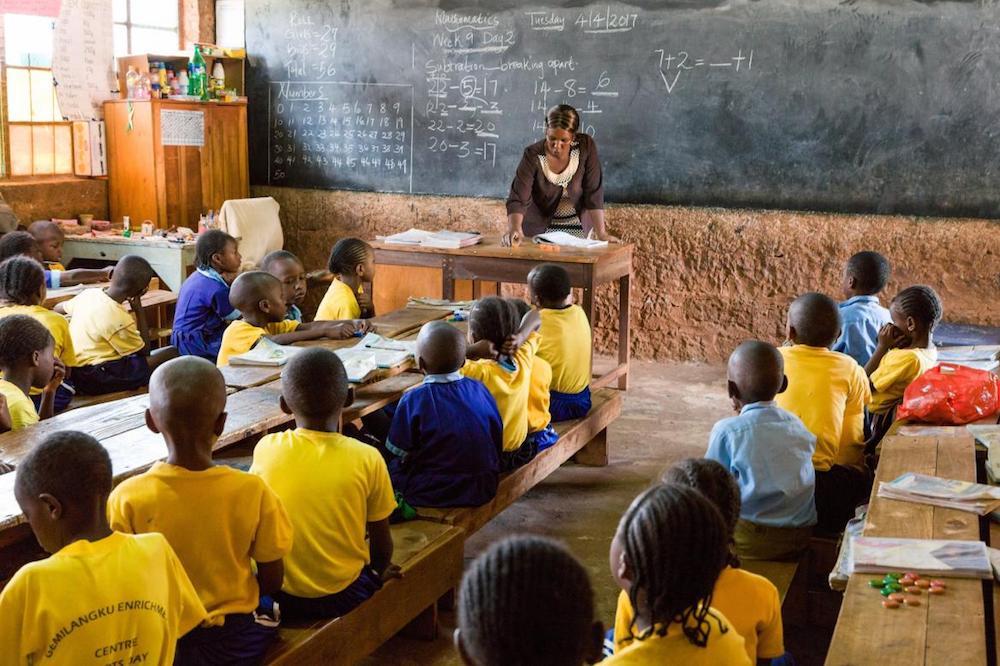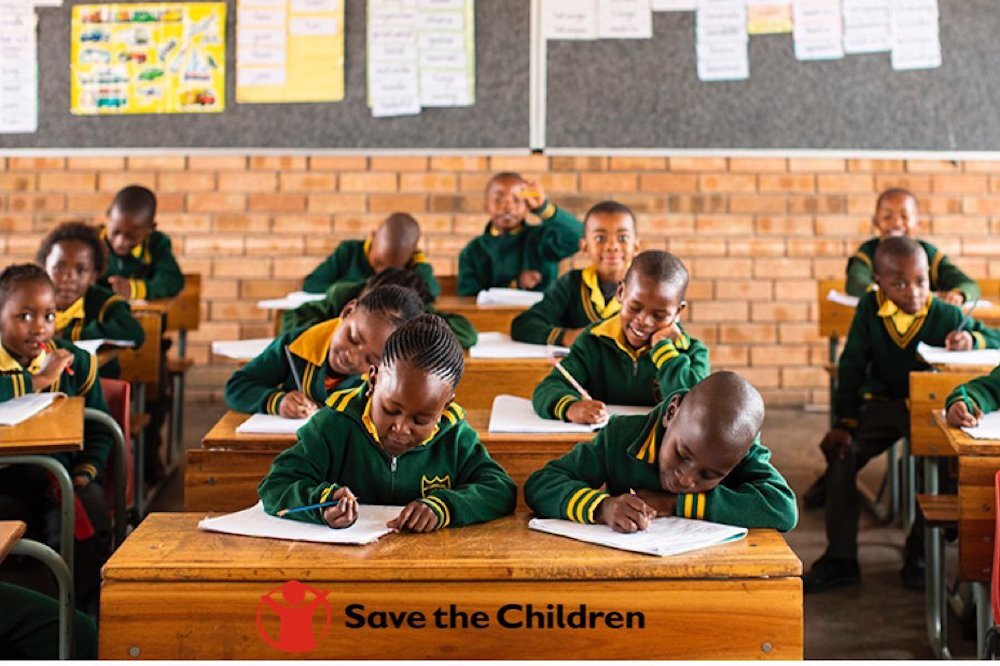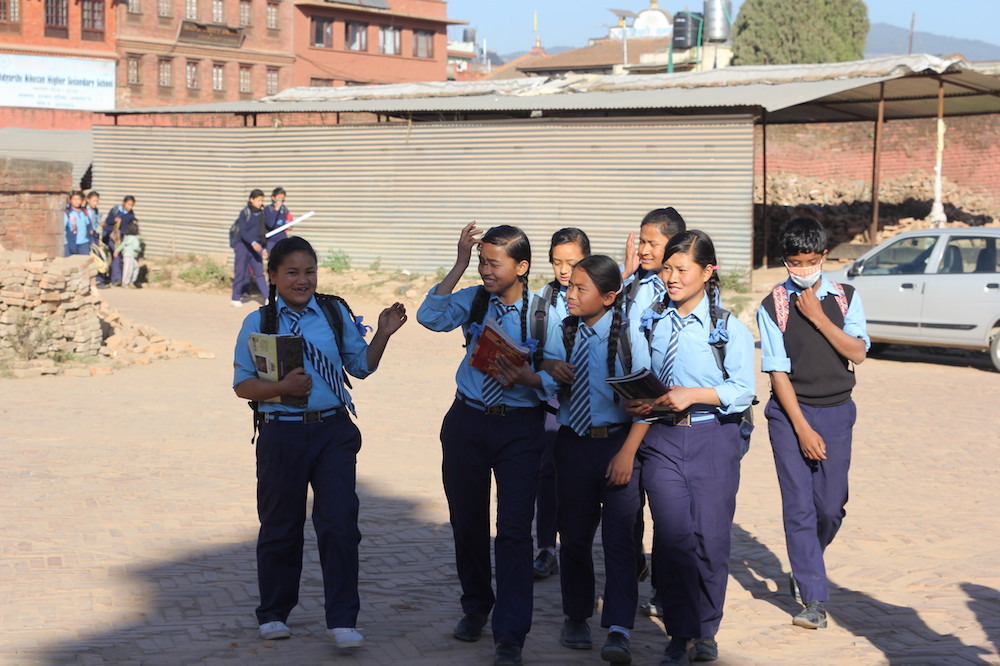
Five things you need to know this week about global education

Early childhood development, Education funding
A global summit will help to transform education for millions of the poorest children - and meet the seven-year-old girl who gave a TED Talk on early childhood development.
Global leaders' big chance to plug funding gap
Leaders will come together at a major education summit next week to make funding pledges that will help transform some of the world’s poorest school systems over the next five years.
The event – co-hosted by the UK and Kenya – will raise funds for the Global Partnership for Education (GPE), which works with low-income nations. The summit will be mostly online, with a small in-person section in London.
A key side event on July 28 will be on “Exploring alternative sources of financing to fund the global education deficit”. Panellists include Theirworld President Justin van Fleet and Education Commission Director Liesbet Steer.
“The money raised by donors at the GPE event will only be a down payment on the financing which will be needed annually to deliver on SDG4 – quality education for every child by 2030,” said van Fleet.
“Current funding falls far short of what is needed. There is at least a $59 billion-a-year black hole in the global education funding budget. The numbers just don’t add up and we need bold action from brave leaders.”
In April, Theirworld launched the Education Finance Playbook, which called on G7 leaders to commit an initial $1 billion in innovative finance, helping to generate more than $25 billion in new funding for lower-income countries.
In addition to fully funding UN agencies and specialised global funds such as GPE and Education Cannot Wait, the Playbook urges leaders to back the International Finance Facility for Education (IFFEd) – a new fund designed to maximise funding from donors to help poorer countries invest in education.
The GPE’s specific target is to raise $5 billion over five years, along with commitments from partner countries on domestic financing for education. This would help up to 90 countries and territories improve and open up their school systems for more than one billion children.
Molly aged seven gives a TED Talk
A seven-year-old girl has become the youngest person to give a TED Talk – with an inspiring argument about how games like peek-a-boo can change the world.
Molly Wright, from Australia, wowed an audience of adults by talking about how games can fire neurons into a developing child’s brain and help to boost memory and trust. She was joined on stage by one-year-old Ari.
Molly said: “Every moment together is an opportunity to connect, talk and play. Imagine the difference we could make if everyone, everywhere did this. To us. To children. It’s so much more than just a game. It’s our future.”
A major report by Theirworld this week reveals that eight in 10 of the world’s poorest children – almost 50 million girls and boys – are missing out on vital pre-primary education because of a chronic lack of funding.
South Africa violence damages schools

Ongoing violence in South Africa is keeping children out of classrooms (Save the Children)
Days of violence in South Africa have damaged at least 30 schools – one of them burned to the ground, according to Save the Children.
It said nine schools which it supports have been affected, including one for children with disabilities. The violence broke out earlier this month, just days after the government said 1,718 schools were already undergoing major repairs following burglaries and vandalism during the Covid-19 lockdown.
Research shows school dropouts in South Africa have tripled during the pandemic to about 750,000.
Steve Miller, Save the Children South Africa CEO, said: “The destruction of schools is a direct infringement on children’s right to a basic education and it further compromises the ability to get children safely back into school.”
Tajikistan to boost school meals
In #Tajikistan ????????, WFP works with the Gov't to help build a healthy, well-nourished nation. Through school feeding, treatment of malnutrition & resilience-building, in 2020, we reached 680,000 people with assistance, including school meals for 500,000 children???????? pic.twitter.com/CmOEEKzkcr
— WFP Asia Pacific (@WFPAsiaPacific) June 21, 2021
Tajikistan’s government and the World Food Programme have committed to improving the lives and education of children by investing in sustainable school feeding.
In 1999, they began a partnership to implement and manage school meals across the Central Asian country.
In vulnerable communities, the meals mean better nutrition, improved health and increased access to education. About 430,000 Tajik schoolchildren from grades 1 to 4 receive daily food.
Now the WFP and government will work together to transition the current joint programme to a sustainable one that will be run entirely by the education ministry by 2027. School canteens are being renovated and staff trained on how to produce healthy meals.
Periods mean Nepali girls miss school

Menstrual taboos are common in Nepal (Theirworld)
More than one in four adolescent girls in Nepal miss school because of their periods.
The finding is revealed in a study of almost 3,500 girls by World Vision International Nepal. Disadvantaged students from the Janajati indigenous group were three times more likely to miss classes than those from “upper caste” groups.
The report said that “provision of adequate information and counselling to adolescent girls on menstruation can be helpful to reduce the menstrual stress, annoyance and shame and secrecy”.
It recommended that menstruation awareness and advocacy programmes should not be limited to adolescent girls but also target heads of households, religious leaders and other social leaders to reduce the stigma around periods.
More news

